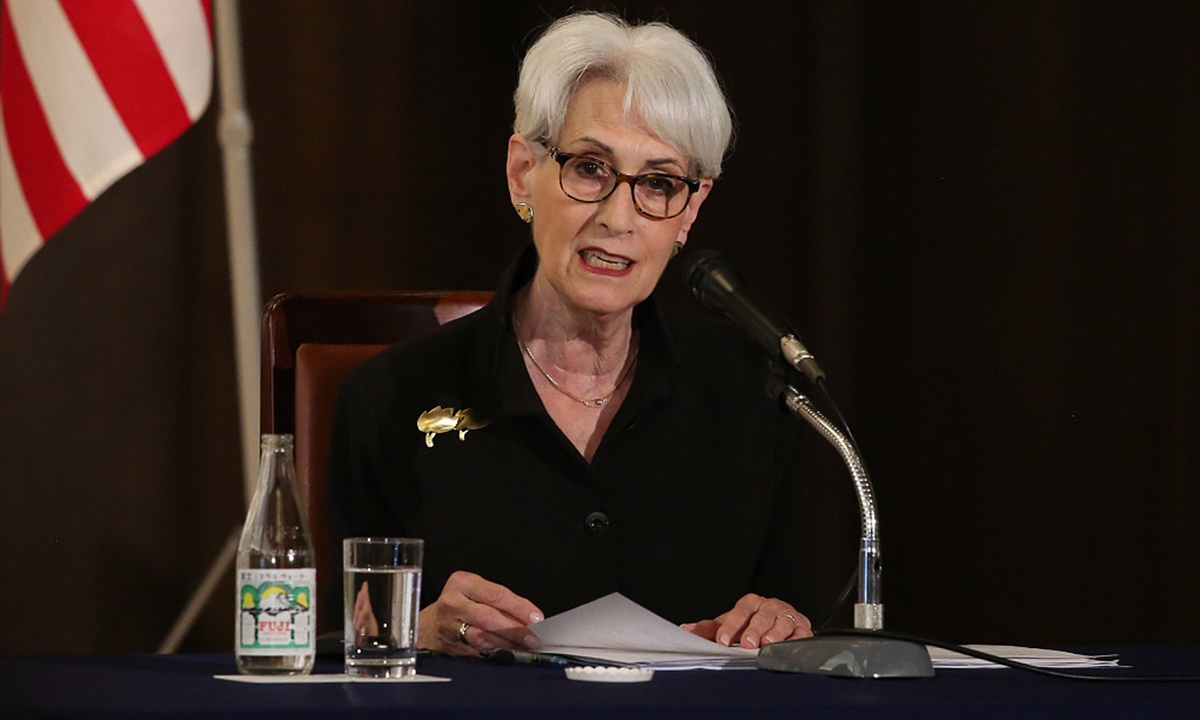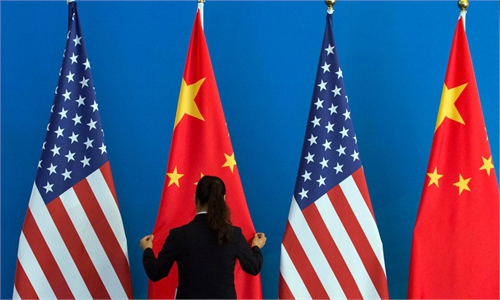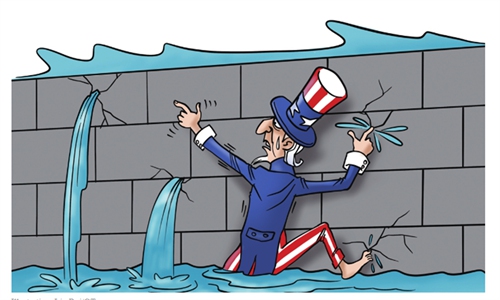US can’t unilaterally define ‘guardrails’ of ties with China: Global Times editorial

Wendy Sherman photo:CFP
US State Department spokesperson Ned Price said on Wednesday that Deputy Secretary of State Wendy Sherman would seek to show China on her upcoming visit to the country "what responsible and healthy competition can look like." He also noted that the US wanted to ensure there were "guardrails" in the relationship and that competition did not spill over into conflict.From our perspective, there's nothing wrong with the literal meaning of these words. China does not want competition to spill over into conflict as well. It would be good for both countries and the world if the two sides could work together to set up "guardrails" to prevent the kind of escalation that is widely feared.
Yet, experience suggests that Washington often says one thing and does another, using beautiful concepts as their brand of bullying and forcefully reshaping the meaning of those concepts. For example, Washington often talks about "rules," but the world has seen the US consistently commit the most brutal violations of the rules on which the United Nations system is based. The rules they talk about are actually a framework for protecting the interests of the US and its major allies. They are also a behavioral norm to force other countries to maximize those interests.
If China and the US want to set up "guardrails" between their competition, they must follow the principle of equality and mutual benefit and follow the spirit of the UN Charter. Washington must not unilaterally set boundaries for China's behavior, nor can it advocate its interests to harm China's core interests even more.
Such "guardrails" would be a unilateral guardrail for the US but a prison circled by a wire fence for China. If Sherman had come to China with such a purpose, the Deputy Secretary's trip would probably have achieved little more than a taste of Tianjin's delicious steamed stuffed bun.
The "guardrails" between China and the US to prevent conflicts must include the following contents:
First, the US should stop interfering in China's internal affairs, abandon its obsession with "transforming China" and refrain from narcissism with the outward aggression of American values. It is the fundamental principle for building a security wall between major countries to respect each other and refrain from interfering in each other's internal affairs.
Second, the US military should not press closer to China's core interests, but should keep the necessary distance. Especially in the Taiwan Straits, the US should not give secessionists in the island of Taiwan a sense of military dependence and encourage them to stir up the tension. That would be very dangerous. In the South China Sea, the US cannot directly intervene in disputes. If it tries to influence the direction of the situation in the South China Sea through military pressure, it will lead to a high risk of conflict.
Third, the US must not turn its competition with China into an aggressive suppression of China's development. Its attempts to gang up allies to keep China out of the world's major supply chains will eventually lead to a fundamental conflict with China if they go any further. A conflict like that would produce a wide divergence, destabilizing and creating long-term uncertainty in international relations, and ultimately shaping China and the US as life-and-death strategic enemies.
In general, the US cannot attempt to attack China's system, or divide China, or block its development path. These are the foundations of the "guardrails" between the two countries. If the US breaks these three rules, it is proactively attacking China, not competing with it. And China will fight back no matter the cost.
So, the US needs to have basic honesty. It should not try to deceive itself. For example, if the authorities on the island of Taiwan under Washington's support or instigation cross the redline of "independence" - the People's Liberation Army will definitely stop it with force. If the US intervenes, a military confrontation between China and the US will take place.
China has no intention to confront the US, but it is a national principle for China to defend its core interests. The US can't unilaterally define the "guardrails" between the two countries out of its own interests, because they need to be defined by both China and the US to advance the interests of both countries. The US has extensive experience in international relations, and hopefully, Washington will not be confused about the core problem of how to engage in competition, instead of conflict, with Beijing.



